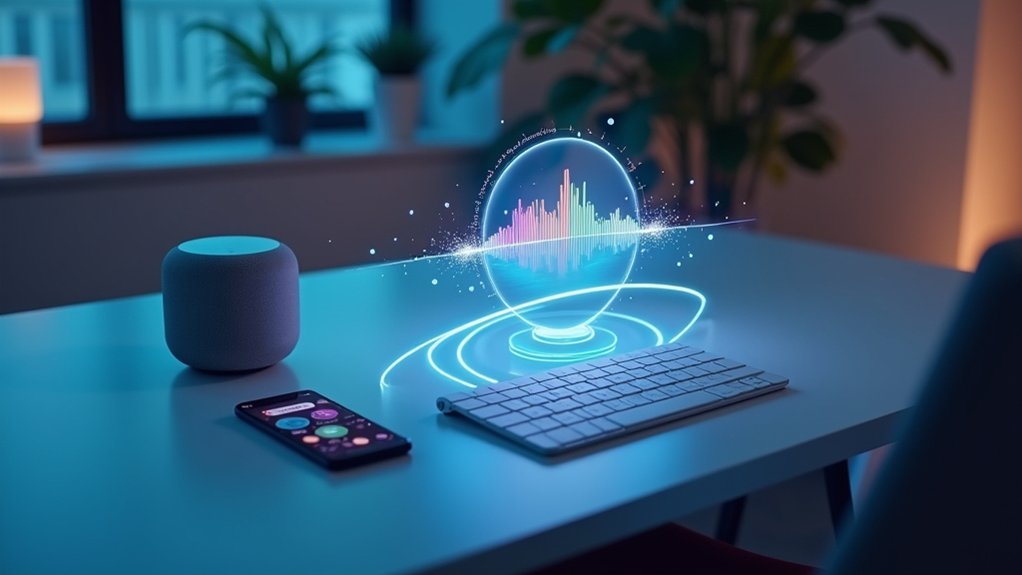AI assistants are software tools that use artificial intelligence to help people with tasks. They understand spoken or typed language and can set reminders, answer questions, or write emails. Popular examples include Siri, Alexa, and Google Assistant. These digital helpers work in various fields like healthcare and finance. The AI market is growing fast, expected to reach $407 billion by 2027. More capabilities await beyond basic commands.

As technology continues to advance, AI assistants have become an essential part of daily life for millions of people worldwide. These software tools use artificial intelligence to perform tasks, answer questions, and help users with everything from setting reminders to writing emails. They can understand what people say or type thanks to natural language processing technology.
AI assistants come in several forms. Personal assistants like Siri, Alexa, and Google Assistant help with everyday tasks on phones and smart speakers. Other AI tools assist with writing, coding, customer service, and specialized work in fields like healthcare and finance. They're designed to make life easier and save time.
AI assistants simplify life through various platforms, handling everything from basic commands to complex industry-specific tasks.
Most AI assistants can interact through both voice and text. They leverage advanced AI technologies to engage in human-like conversations that feel natural to users. They can set up meetings, find information online, offer personalized recommendations, and even control smart home devices. The AI market powering these assistants is experiencing tremendous growth with revenues projected to reach $407 billion by 2027. Their ability to automate routine tasks makes them valuable for both individuals and businesses.
The benefits of using AI assistants are significant. They boost productivity by handling repetitive tasks, provide customer support around the clock, and deliver personalized experiences based on user preferences. For businesses, they reduce costs and minimize human error in data processing. Similar to AI chatbots, these assistants can significantly improve efficiency by automating routine customer interactions.
However, these digital helpers aren't perfect. They sometimes struggle with complex questions or unusual requests. There are also privacy concerns about how they collect and use data. Their accuracy depends on the quality of their training data, and they can't always replace human judgment in important situations.
Looking to the future, AI assistants will continue to evolve. They'll use more advanced algorithms, better understand emotions, and expand into more specialized applications. We'll see them integrate with more devices and develop increasingly natural conversation abilities.
As the technology improves, AI assistants will likely become even more integrated into our daily routines and workplace operations.
Frequently Asked Questions
How Secure Is My Data When Using AI Assistants?
Data security in AI assistants typically involves several layers of protection.
Most services use strong encryption like AES-256 for data in transit and storage. Companies often implement strict access controls including multi-factor authentication.
Users can usually request data deletion, with retention periods varying from 30-90 days. Major providers maintain industry certifications such as SOC 2 and comply with regulations like GDPR and CCPA.
Can AI Assistants Replace Human Customer Service Completely?
AI assistants can't completely replace human customer service.
Research shows 75% of customers prefer human interaction for service issues. AI tools lack emotional intelligence and struggle with complex problems. They can't build genuine rapport with customers or handle nuanced situations.
Instead, AI works best alongside humans in hybrid models, handling routine queries while people tackle more complicated issues.
How Do AI Assistants Learn From User Interactions?
AI assistants learn from user interactions through several key methods. They track conversations, noting what works and what doesn't.
Feedback loops analyze successful exchanges, while personalization algorithms build user profiles based on past interactions.
The systems employ reinforcement learning to improve responses over time. Regular model updates incorporate new data from millions of interactions.
This continuous learning helps AI become more accurate and helpful with each conversation.
What Are the Current Limitations of AI Assistants?
AI assistants currently face several key limitations.
They can't truly understand context or detect sarcasm. They struggle with complex situations and cultural nuances. These systems depend on internet connectivity and have processing constraints.
Privacy concerns include potential data breaches. Additionally, AI assistants lack genuine emotions, empathy, and creative thinking. They can't form original ideas or use intuition like humans do.
Will AI Assistants Impact Certain Job Markets Negatively?
AI assistants will impact job markets negatively in certain sectors. Reports show up to 300 million jobs could be lost globally by 2030.
Data analysts, customer service representatives, and paralegals face high displacement risks. Women and white-collar workers earning up to $80,000 are especially vulnerable.
However, AI's growth creates new opportunities in development and maintenance roles. Financial advisors may see continued demand due to the need for human connection.









